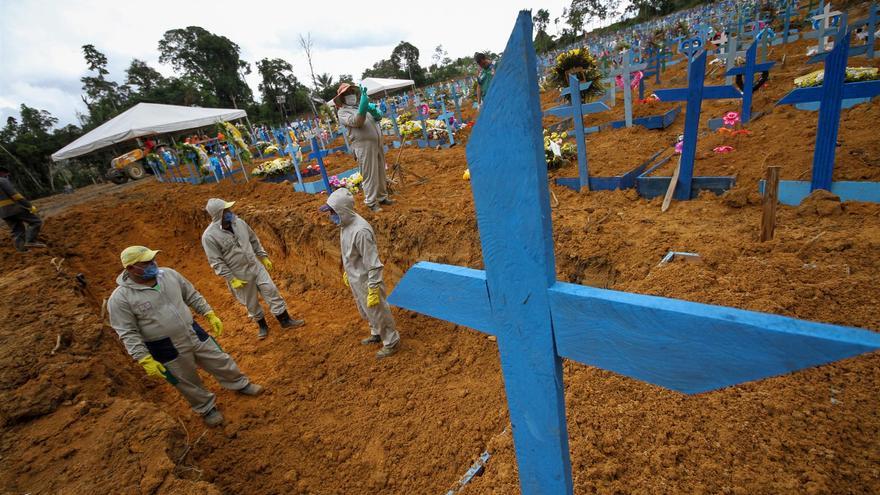
The mortality caused by covid In the first wave, hospitals in Brazil skyrocketed when their health system was overwhelmed, with a hospital death rate of 38%, 60% of those admitted to the ICU and 80% of those requiring mechanical ventilation, according to Europa Press .
This is one of the conclusions of a study published today in the journal ‘The Lancet Respiratory Medicine’ conducted by scientists at the Barcelona Institute for Global Health (ISGlobal), a center promoted by de la Caixa Foundation, the University of Sao Paulo, the Catholic University of Rio de Janeiro, the D’Or Research and Education Institute and the Oswaldo Cruz Foundation.
The work has analyzed the first 254,288 patients admitted to a hospital in Brazil for coronavirus, 47% of whom were younger than 60 years, and concluded that in addition to the high mortality, regional disparities in the quality of care.
According to the study, covid-19 is spreading in Brazil flooded health systems in all regions of the country, especially in those areas where they were already vulnerable.
Researchers have emphasized that the pandemic has shown the need for healthcare professionals, intensive care beds and respiratory equipment around the world, but the death rate among confirmed cases varied widely from country to country, which they attribute to differences. in the capacity and preparedness of their health systems.
“To date, there is very limited data on the mortality of hospital patients with covid-19 or how health systems are coping with the pandemic in low- and middle-income countries,” explains Otavio Ranzani, ISGlobal researcher and lead author. of the study.
Brazil, for example, is an upper-middle-income country with a unified health system for its 210 million inhabitants, a health system that, according to Ranzani, has been undermined by recent economic and political crises and with great heterogeneity in the different regions of the country.
The researchers used data from a national surveillance system to assess the characteristics of the first 254,288 patients admitted to a hospital with covid-19 in Brazil, whether they needed intensive care or respiratory support, and how many of them died.
They also analyzed the impact of covid-19 on health care and hospital mortality in the five major regions of the country.
The study found that the hospital death rate was high (38%) and increased to 60% among those admitted to the intensive care unit (ICU) and up to 80% among those who received mechanical ventilation.
Although COVID-19 overwhelmed the health system in all five regions, hospital admissions and mortality rates at the start of the pandemic were significantly higher in the northern and northeastern regions of Brazil (for example, 31% of patients under 60 died in hospitals in the Northeast compared with 15% in the south).
“These regional differences in mortality rates reflect differences in access to better medical care that existed before the pandemic,” said Fernando Bozza, study coordinator and investigator at the National Institute of Infectious Diseases. “This means that covid-19 disproportionately affects not only the most vulnerable patients but also the most vulnerable health systems,” he added.
It may interest you
According to Ranzani, “Brazil’s health system is one of the largest providing free care to all people and has a strong tradition of monitoring infectious diseases, but covid-19 system capacity exceeded“.
The authors conclude that the high mortality observed in hospitals highlights the need to improve the structure and organization of the health system, particularly in low and middle income countries, which means more resources are needed, from equipment and consumables to beds . ICU and health personnel.